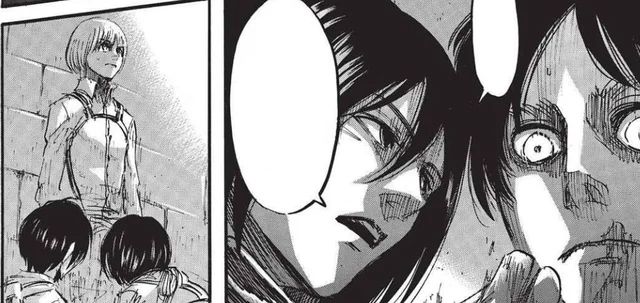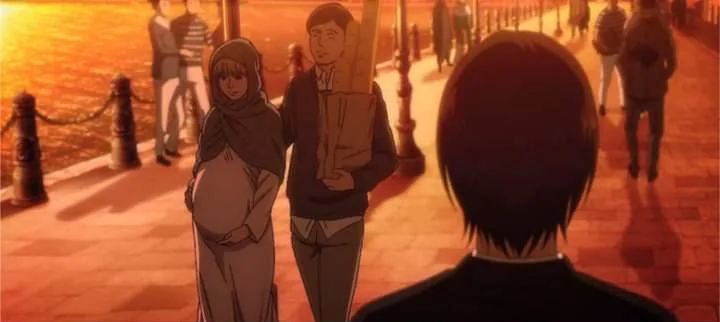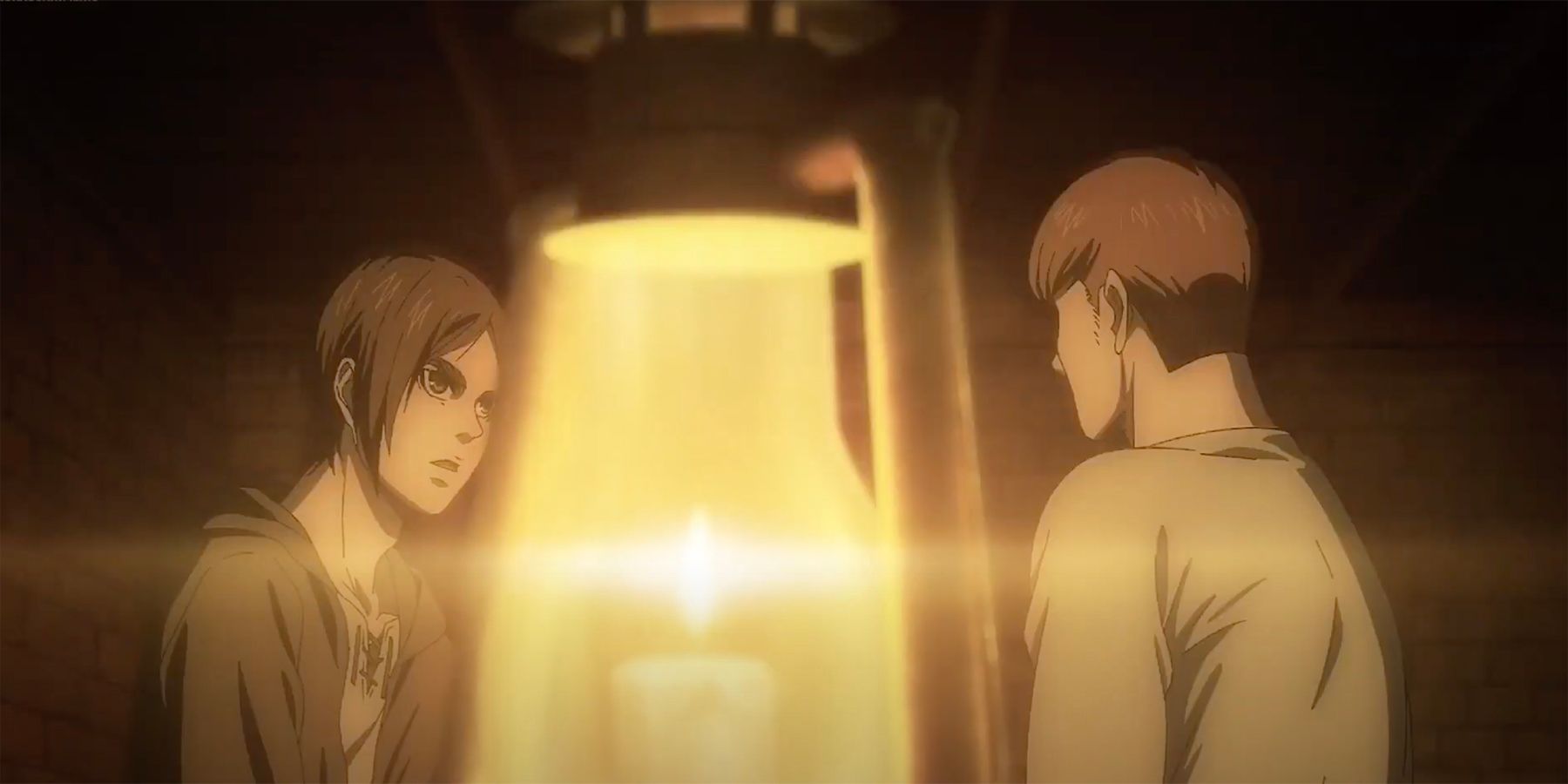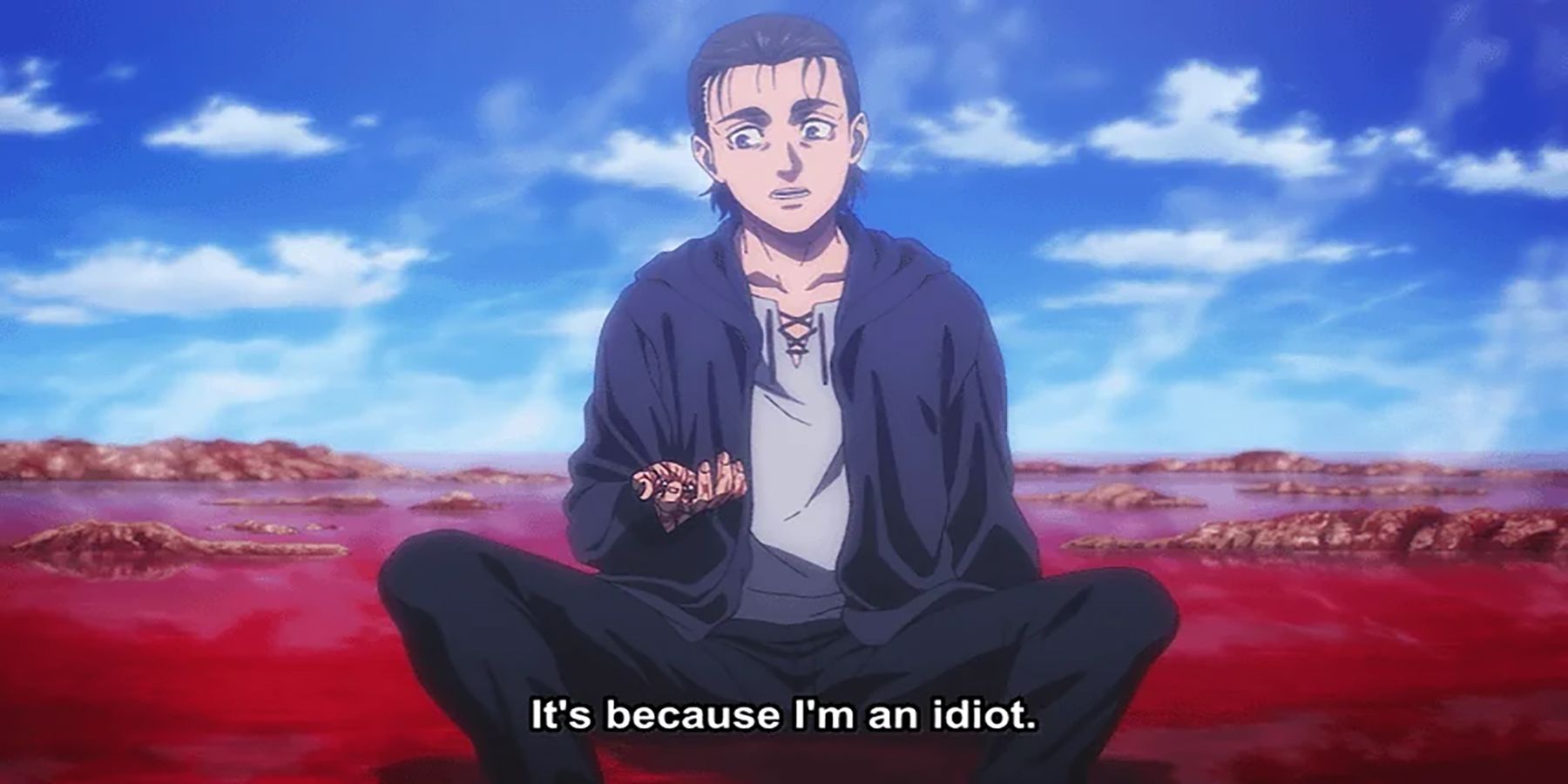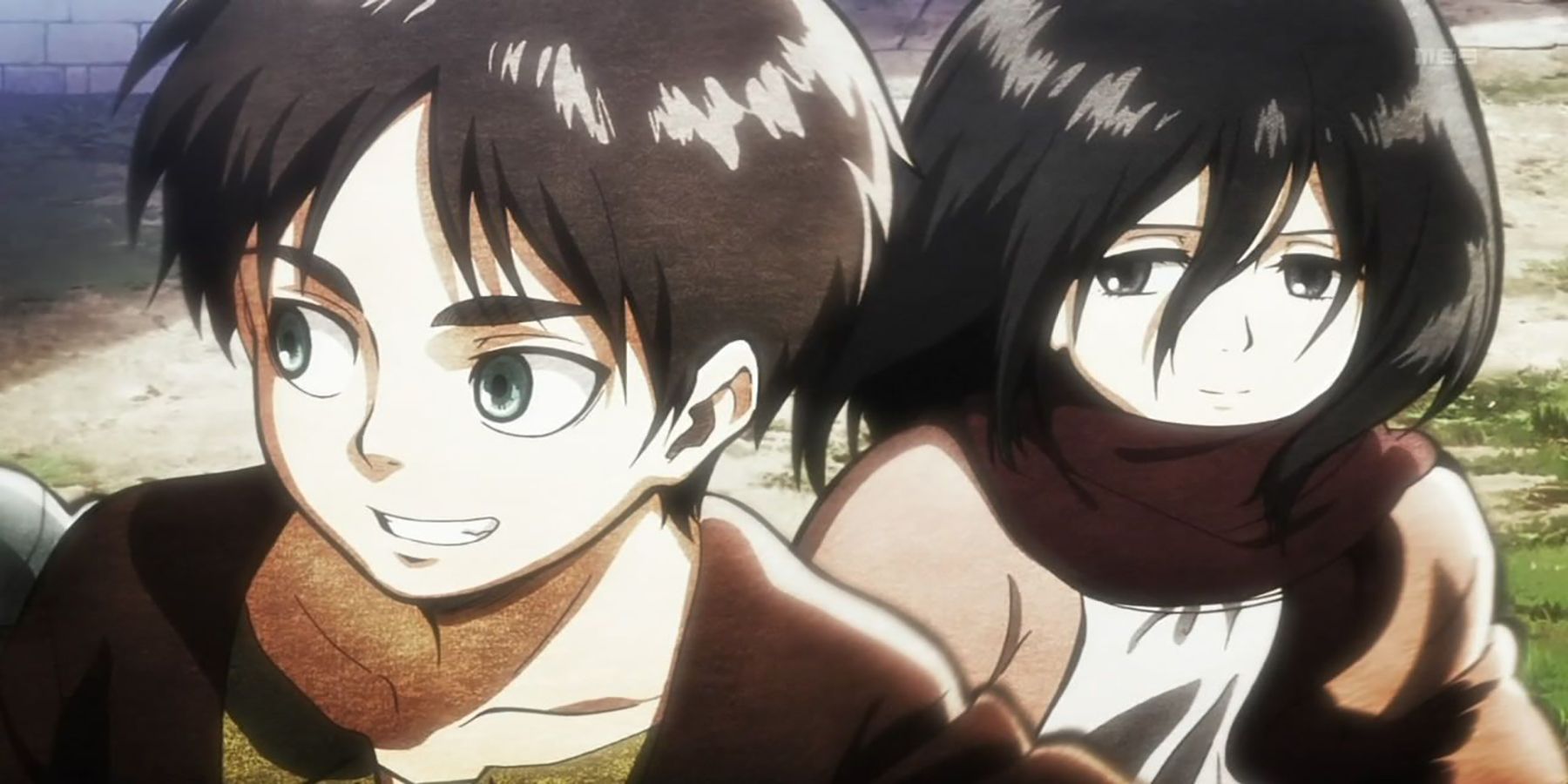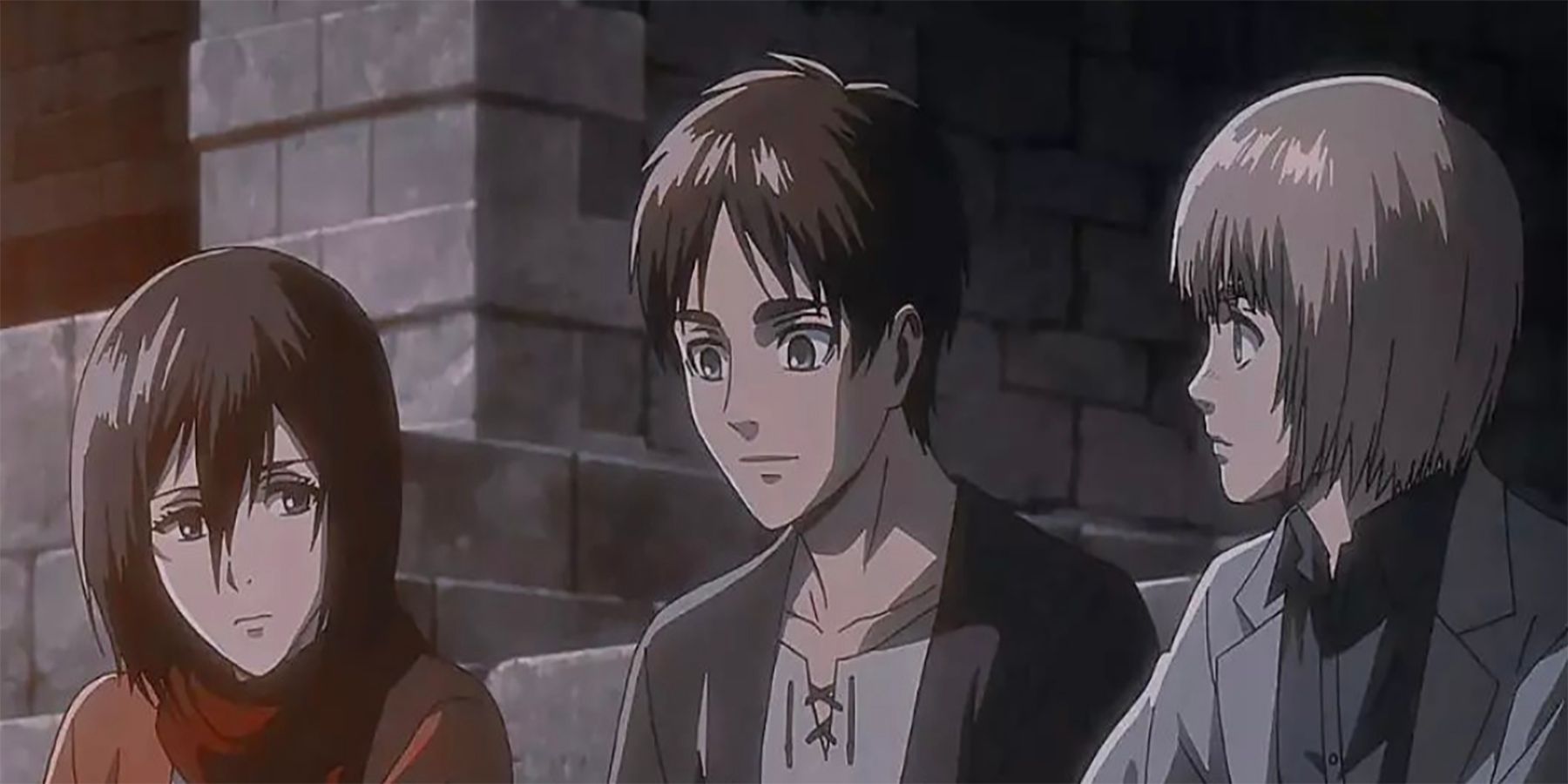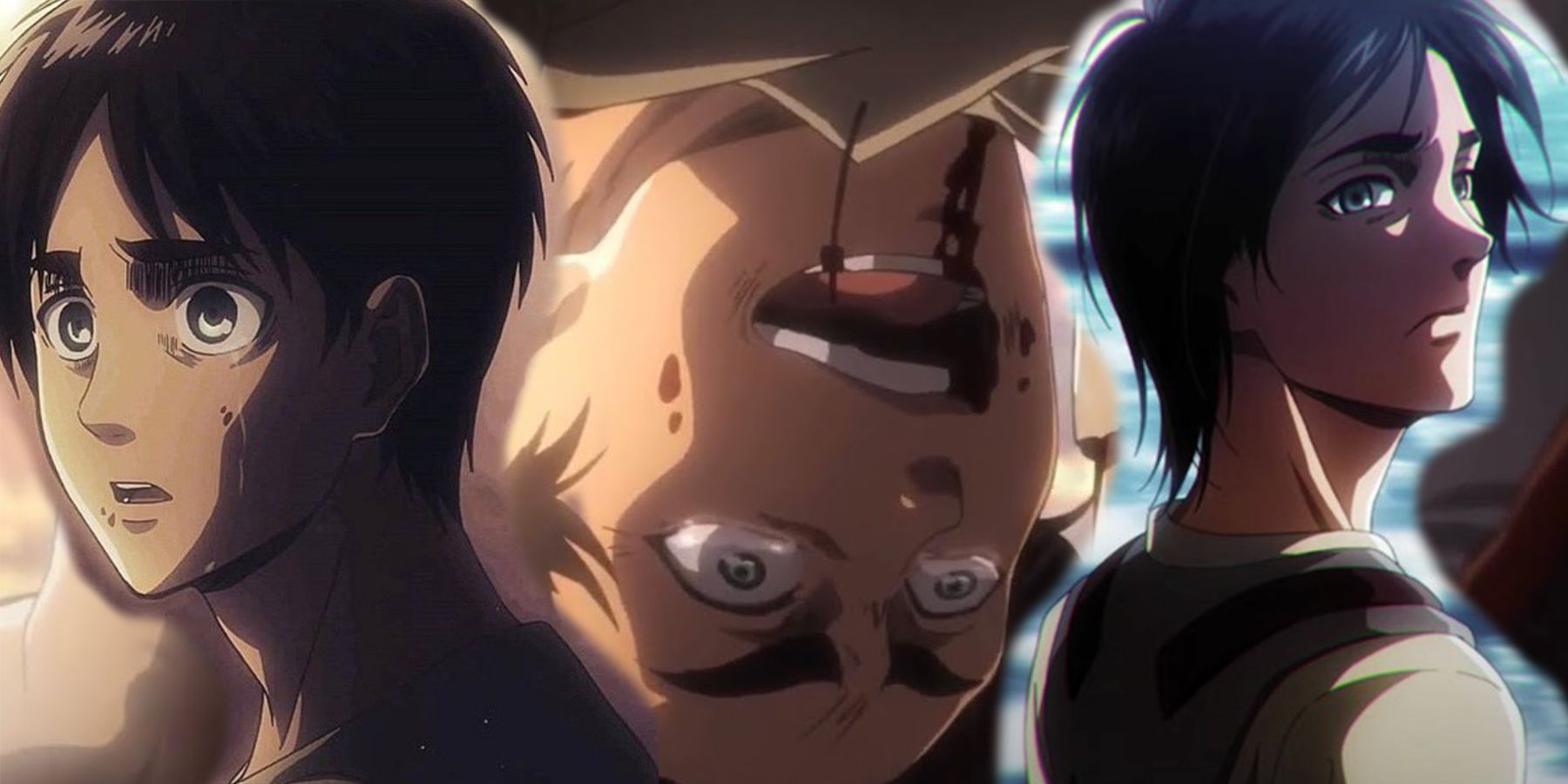
Highlights
- Eren’s sudden change reveals a facade, sparking mixed reactions from viewers about his true motive.
- Eren’s polarized thinking leads to impulsive actions, highlighting his complex morality and emotional instability.
- Eren’s insecurity drives his reckless behavior and desire to protect Mikasa, blurring the lines between hero and villain.
In season 4 of Attack on Titan, Eren made a sudden change of heart, when he was re-introduced as “Eren Kruger” and went on to declare war on Marley. No longer being told from his perspective, the narrative strayed away from Eren’s curiosity about the outside world, and planted the question, “what is Eren’s motive?”.
Throughout the season, audiences are given bits and pieces about what’s happening from other characters, until Eren’s intentions are revealed. Come the second cour of Attack on Titan‘s final season, we see that Eren never “changed”, but was instead putting up a facade, leading to mixed audience reception. Though this sudden behavioral change may not be so “sudden” after all.
Attack on Titan’s True Message Is Not Freedom
One of the biggest themes in Attack on Titan is what defines freedom, but is that truly the message the series was trying to get across?
Empathetic Monster
Eren is a unique concept, in that he isn’t a “bad” person, but he’s not a conventionally “good” person either. At 9 years-old, Eren tracked down three human traffickers who kidnapped Mikasa and killed them without hesitance. His reasoning was that they were “animals that just looked like humans”. Eren exhibits polarized thinking in both his actions and his drive as a character. As a result, he uses a primarily black/white morality to justify his actions. Though it’s because of this innate “good guy vs bad guy” mentality, Eren is initially unable to make decisions that will put his principals at risk.
When Annie is first suspected of being the Female Titan, despite all the evidence, Eren refuses to entertain the idea, simply because they are friends. In season 2, when Reiner and Bertholdt flat out confess, Eren reacts similarly. Arguably, this makes Eren a good friend, as giving the benefit of the doubt is a noteworthy trait, but this also serves as a disadvantage. Because of his hesitance to fight his friend and accept that betrayal can happen at any moment, he is unable to transform, putting the lives of the civilians at risk.
Come season 4, Eren becomes more empathetic, but yet his actions become crueler, after having seen the revelation of the future. With the realization that the Titans are no longer the “true” enemy, Eren is faced with the reality that the black/white world he saw was in fact gray the whole time. This development in itself would be beneficial, if not for the fact that Eren also saw that his “kill or be killed” mentality applied to everyone. As he finds the rest of his options exhausted, Eren concludes that the only outcome that could save his friends would be to initiate The Rumbling. And the best way to cope with it, was to make a farce that he was a cruel leader, and enlist the help of Floch, who authentically shared that mindset.
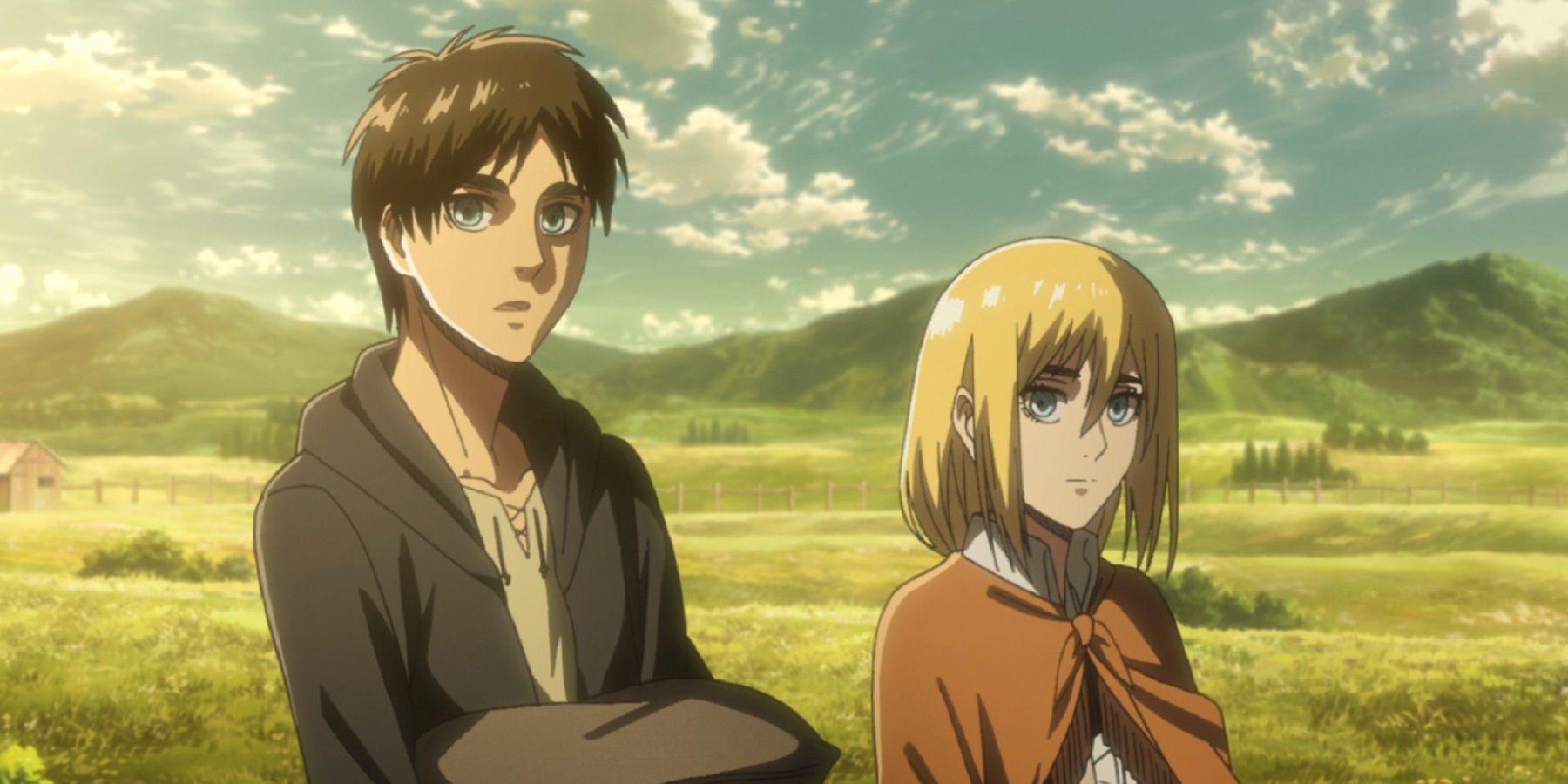
Attack on Titan: Eren and Historia’s Relationship, Explained
Attack on Titan focused heavily on Eren and Mikasa’s dynamic, but Eren and Historia might’ve had the more interesting relationship.
Power in the Hands of a Fool
With the latter’s help and influence, Eren was able to form a faction (the “Jaegerists”), and thus make his friends turn against him. Due to this sudden change of heart, many readers were put off by Eren’s actions and felt that his character was rewritten to appeal to an “edgy” audience. But it would only be a matter of time before we learned that while he did change as a character, he grew differently.
After Eren’s falling out with Mikasa and Armin, Jean observes that Eren’s behavior must have reasoning. Seeing how he (Eren) wears his heart on his sleeve, Jean concludes that the heartless words Eren said to them served a bigger purpose. After all, people don’t just change overnight. We see that Jean’s hypothesis holds weight, when it’s revealed that Eren had to delude himself into thinking that he was enjoying The Rumbling, by regressing to a child-like state mentally, to cope with the fact that the “empty” world he saw in front of him, was made up of destroyed fauna and corpses. Come Armin and Eren’s conversation in Paths, the mental toll the events of season 4 took on the latter, comes to fruition, and he breaks down crying.
Eren is impulsive and emotional and that scene in itself is proof that he’s not a cruel person and not a genius either, but an idiot who has no idea what he’s doing – it really is that simple. And that’s who Eren’s always been. Because of his imperfections and way of thinking, Attack on Titan‘s ending was as fitting as it was: flawed. Sure, Eren could have used the Founding Titan to simply tell the citizens of Paradis to evacuate before they were attacked, or maybe instead just do a partial Rumbling, like was initially planned. But Eren, being only 19 years old, knowing what the future holds, and wanting to save everyone, is not the person fit to make those decisions. Moreover, it can be debated that while Eren was attempting to change the future with his “how do you feel about me?” question to Mikasa, he was also looking for an excuse to run away.
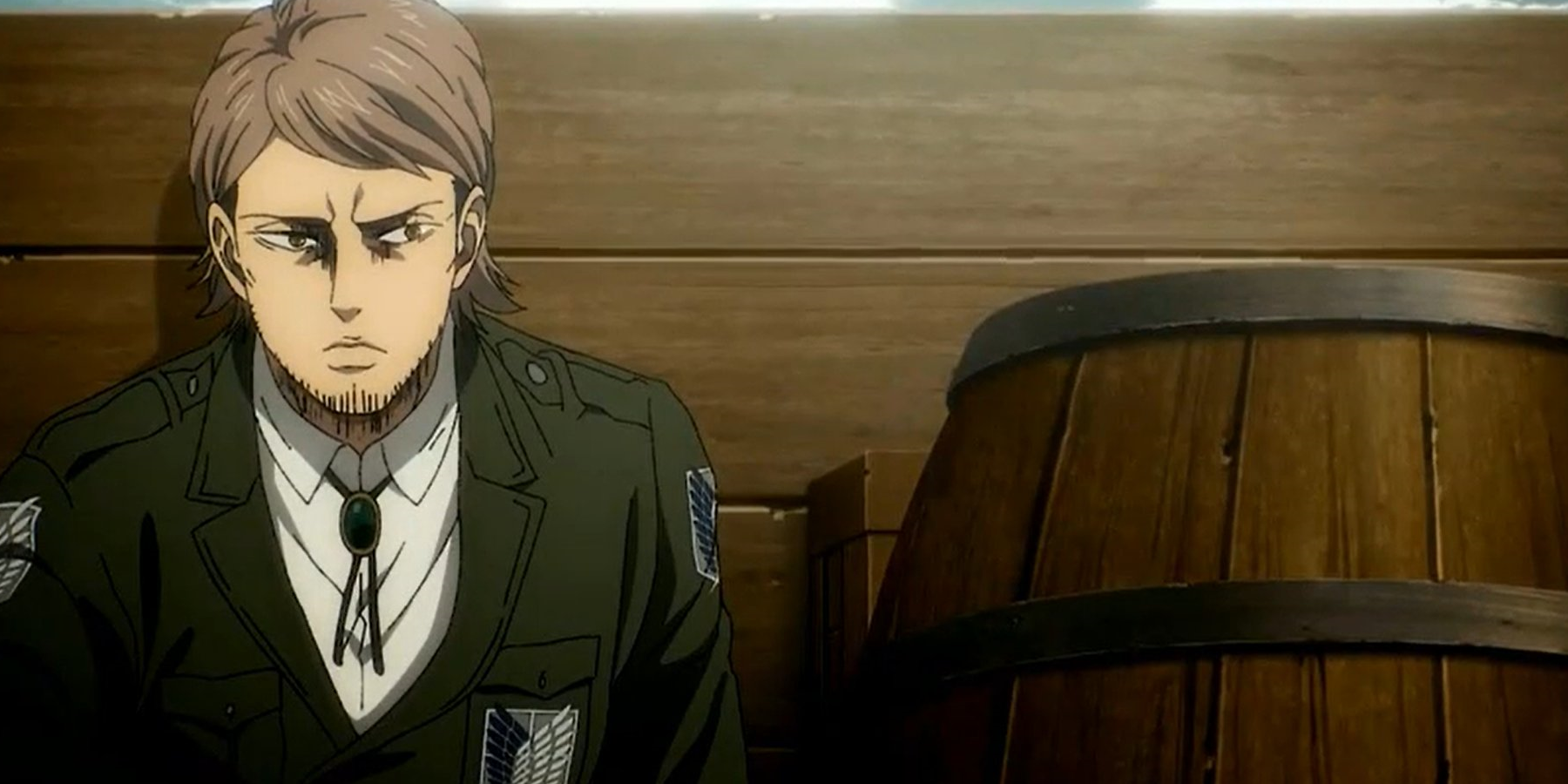
Attack on Titan: Jean is Tormented by the Past
As the Jeagerists continue to turn Paradis Island upside down, Attack on Titan’s latest episode opens up some old wounds for Jean and the main cast.
Love is Blind
It should go without saying that from episode 1, Eren was insecure. He always felt a need to prove himself and felt inferior to Mikasa, who was much stronger than he was. This is relatable to a real life complex that many boys experience. The man must always protect the woman, the man must always be stronger, etc. Carla’s words to him as a child only solidified his insecurity, when she advised him to protect Mikasa for once.
This is partially why he is as reckless as he is and goes off on his own. His relationship with Mikasa wasn’t one of hate, instead he felt insecure because he wanted to be the one to protect her. Like many men in real life, they have an instinctual desire to protect their partner, and in an environment that places that responsibility on men, Eren doesn’t feel like a worthy partner. Later in the series, Eren grows to respect Mikasa and wants to be her equal, rather than her superior.
Transcending Time
It’s implied that Eren’s connection with the Titan’s Curse/Ymir didn’t begin when he ate Grisha. In the “Lost Girls” manga, Eren warns Mikasa that she’ll die to a “powerful force” if she remains complacent. Fans debate that in this timeline, the future Eren dreamed of were the events of “Akatsuki no Requiem”, where he completes The Rumbling. In this hypothetical scenario, he would kill Mikasa, and he had to live out the rest of his life alone – which is why, in the “main timeline”, Eren is so desperate for her to move on after his death. Mikasa could live happily without him, but Eren couldn’t without her.
Later on, Grisha tells her that this “powerful force” is something she could save him from. This theory is further backed up when we see Eren’s dream is different in both anime and manga. In the original manga, he dreams of his death in the cabin. In the anime, he dreams of the destruction he would cause in the future – this being Hanne’s death, Levi’s squad, a broken Helos statue (the raid on Liberio), the Tybur family’s daughter’s playroom (Willy Tybur’s death), and when Carla is eaten. The fact that Eren immediately knew where to find Mikasa after she was kidnapped is also spark for debate.
Eren is not a hero nor a villain, yet, at the same time, he is both. Depending on the viewer’s interpretation of his actions, Eren could be anything – and this is the most realistic aspect of Attack on Titan; he is human.
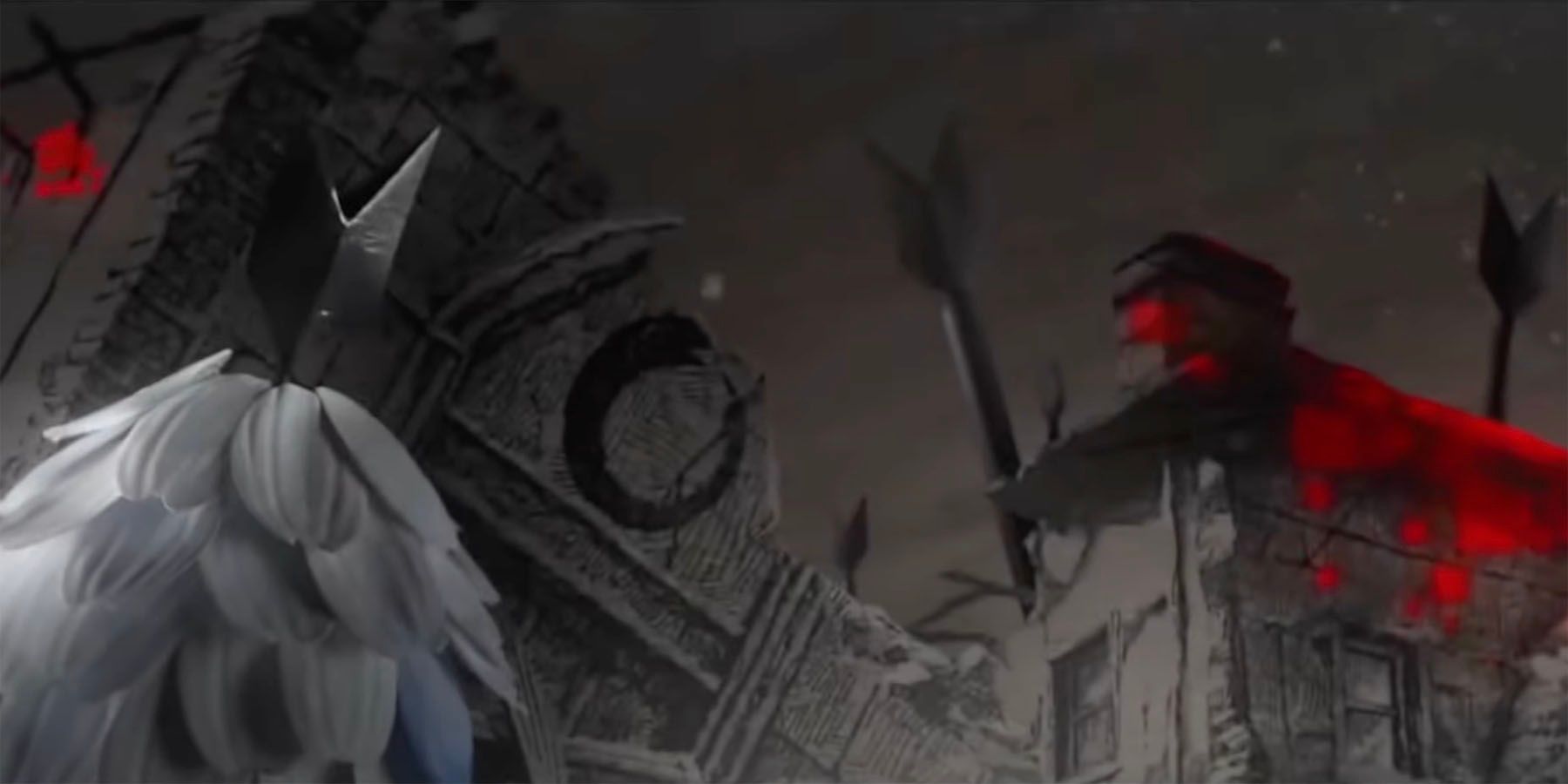
Is Attack on Titan Not Over? The Akatsuki no Requiem Theory
Attack on Titan has come to an end, but fans are left wondering if the ending we got was truly intended according to one music video.
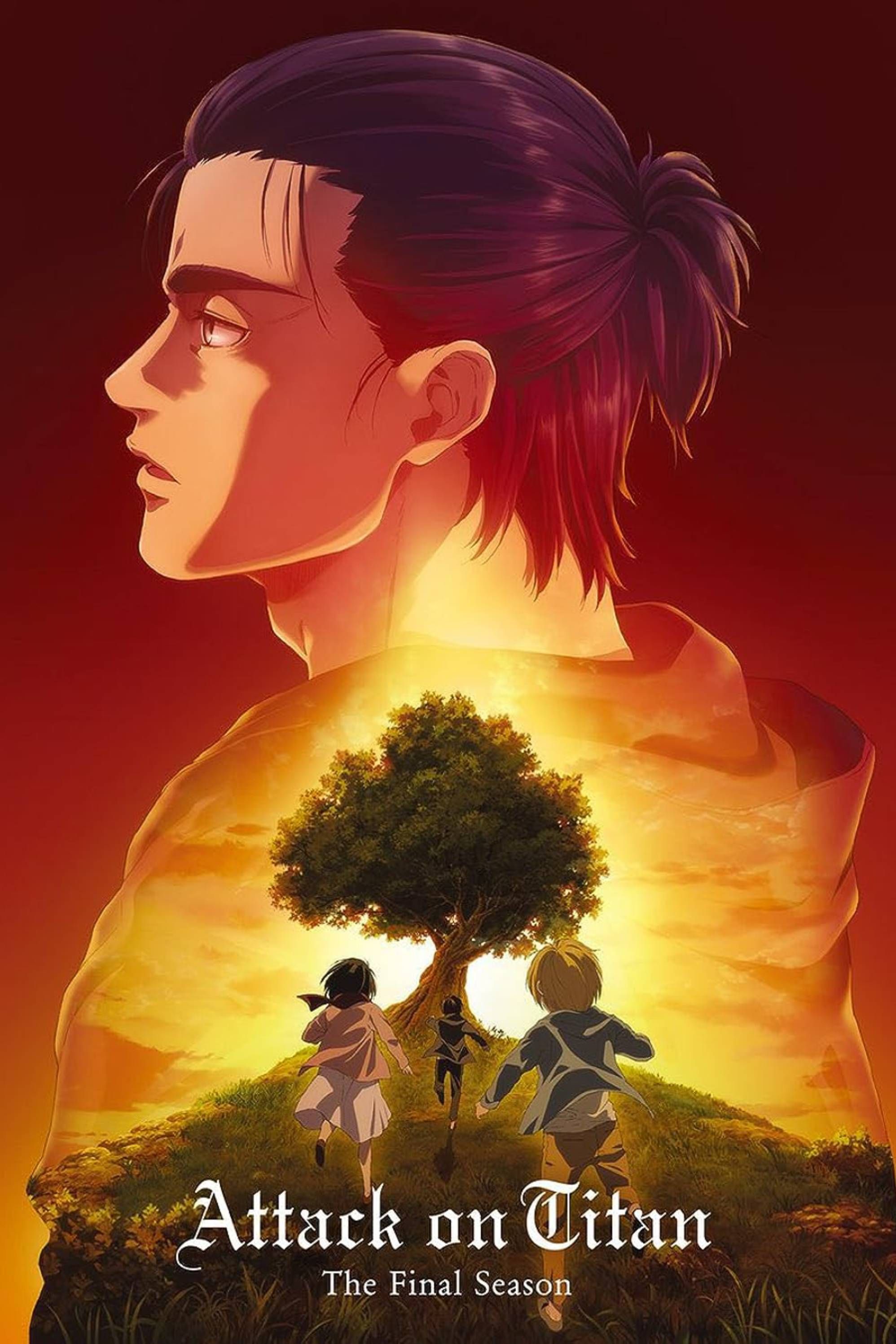
Attack On Titan
Based on Hajime Isayama’s widely popular manga, Attack on Titan is a dark fantasy anime set in a world where humanity lives behind walls to protect themselves from massive creatures known as Titans. Over the course of four seasons, the story takes plenty of unexpected twists and turns, almost evolving into a different type of series in the process.
